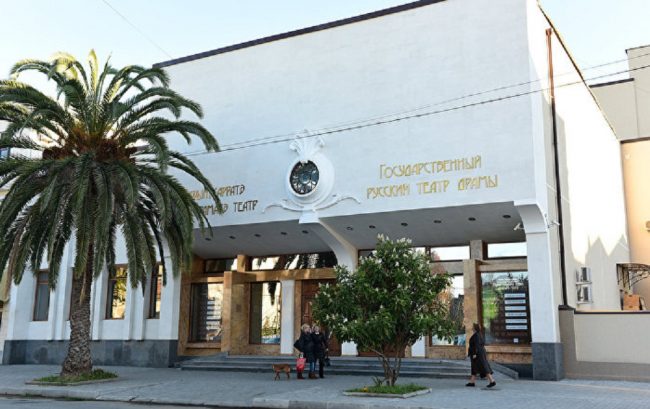

 The state-owned Georgian National Film Centre (GNFC) has condemned the holding of the Sukhum International Film Festival in Abkhazia. They say the festival represents ‘soft power deployed by Russia’s occupation regime’.
The state-owned Georgian National Film Centre (GNFC) has condemned the holding of the Sukhum International Film Festival in Abkhazia. They say the festival represents ‘soft power deployed by Russia’s occupation regime’.
The festival is being held in Sukhumi (Sukhum) on 2–7 April. According to their website, the festival includes submissions from several countries, including Russia, the UK, and South Korea.
In a 2 April statement, the GNFC appealed to filmmakers to ‘resist soft power’ and to ‘do their utmost not to violate the legislation of Georgia, in particular, the Law of Georgia on Occupied Territories’.
Under the law, Georgia prohibits entry to Abkhazia from Russia, labelling it illegal entry — foreign citizens are only allowed to enter Abkhazia from Georgia’s Samegrelo region.
The GNFC said that while hundreds of thousands of people have been displaced from Abkhazia, ‘holding an event like a film festival in this region should be interpreted as an attempt to focus on the so called independence of the region’, and ‘an attempt to recognise the legitimacy of occupation regimes’.
The festival kicked off on 2 April in Sukhumi’s State Russian Drama Theatre. According to Ekho Kavkaza, it was organised by the Abkhazian State Committee for Youth Policy. Its chair, Teimuraz Kvekveskiri, said the main goals for holding the event are ‘development of cultural exchanges between countries and the support of young filmmakers’.
According to the organisers, this year’s festival will feature only short fiction films, but ‘in the years to come this festival will open up for feature-length films and documentaries’.
The GNFC is a government agency under Georgia’s Ministry of Culture. They vowed to ‘use all possible and available means’ to warn filmmakers against attending and participating in the event.
In recent years, Georgian authorities have repeatedly thwarted Abkhazian initiatives abroad. In May 2017, they blocked a twinning agreement between Sukhumi and the Italian town of Santa Maria Del Cedro.
Georgia also blocked the opening of an Abkhazian cultural institute in Rome in 2016, and an Abkhazian stall was shut down at a Montenegro tourism expo in April 2016, after Georgian officials intervened. They claimed that it presented Abkhazia, which Georgia sees as a part of their territory under Russian military occupation, as an independent state.
Last year, the removal of a memorial in the Scottish town of Kilmarnock to those from Sukhumi who perished in the Georgia–Abkhazia war sparking outrage in Abkhazia. The memorial was removed at the request of the Georgian ambassador to the UK. East Ayrshire Council, of which Kilmarnock is a part, told OC Media in November that the memorial would be reinstalled unchanged, until ‘a universally acceptable alternative wording and content’ can be agreed by all sides.
For ease of reading, we choose not to use qualifiers such as ‘de facto’, ‘unrecognised’, or ‘partially recognised’ when discussing institutions or political positions within Abkhazia, Nagorno-Karabakh, and South Ossetia. This does not imply a position on their status.









